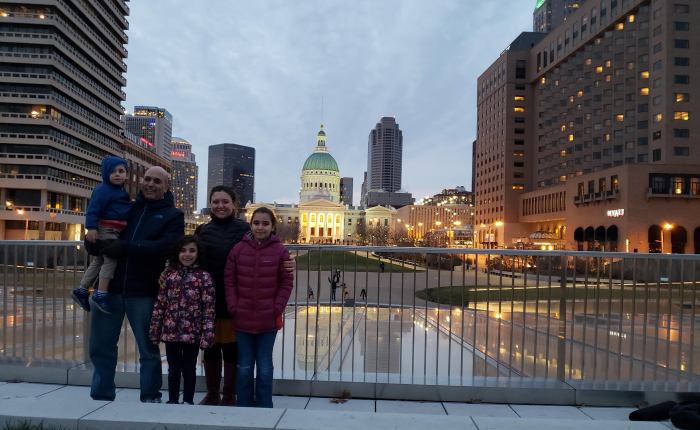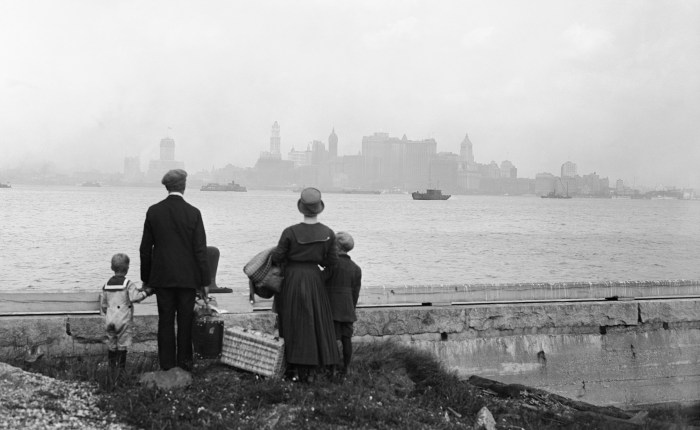It took me weeks to absorb what our country did on November 8 (see my prior post, written on day 1). I say this only as a prologue; there has been enough public grieving for me to detail it again here. At some point, when no amount of the usual comforts could bring me out of my darkness, I turned for answers to the source of my worldview: to my faith. This post is for other Christians who are struggling with the election results, and perhaps for those who don’t understand why we (anti-Trump Christians) are struggling. I hope these reflections will be helpful to others, as drafting them has been for me.
Let’s begin with this: no one can declare that God was on the side of any candidate; to do so would claim an omniscience we ought not dare to assume. Arguments can be (and have been) made on either side.¹ ² (Their credibility, mind you, needs to be carefully evaluated…but I digress.) And more importantly, the Bible, where we discern God’s message to us, is conspicuously silent on the issue of how to vote. The Bible speaks, rather, of how to live: love the Lord and love your neighbor, follow the 10 Commandments, run your race, to name just a few.
So that is what I will attend to. How tens of millions of people voted is well outside my sphere of control or influence, but what is solidly within my control is how I live my life, and the impact I have on those around me. As a Christian, I should be asking myself: am I living each day in a way that pleases God and aligns with God’s message to humanity? Am I living it with an eye towards my spiritual life, which will last far longer than the best things this world has to offer?
I’ll be frank. It’s been hard to remember that in this past month. It’s been hard not to look at the hateful acts committed and words said in the name of our president-elect and not think the end of the world is coming. Seriously. It’s been hard not to look with, um, incredulity at someone who knows less than a little about how government works and yet proclaims that he will fix everything, and who thinks he can (as do his supporters) simply because he is rich.
But yet, here’s the thing. I don’t believe that Trump made America worse. The ugliness was there all along, in the shadows. For many Americans, Trump encouraged the basest of urges, urges belonging to people who knew better than to vocalize them. They knew better because for decades now, our national civil teachings have said it is wrong to speak hatefully of, threaten, or harm members of our society for something that is part of their being (and that, even given the choice, they should not have to deny): race, religion, sex, national origin…you get the picture. These teachings, by the way, fit nicely with teachings in Christianity. Moreover, they are values that matter very, very much to me. Building bridges between cultures, working towards equality, seeing and honoring the humanity in others: this stuff is the very theme of my life. It is my mission. So yes, to see Trump, and all the hatred he embodies, elected to the presidency was devastating.
That ugliness, that darkness–in this case, the anger and fear that wants America to be one big monolith that reinforces one’s own personal views–will always be and has always been a part of our world. If we zoom out from 2016, from America, and look at the history of humanity, we see a thread. In the oldest civilizations, you find stories of struggle for power, struggle for acceptance, fear of the other, desire to lash out whenever one’s views and life choices are threatened. Fear of those unlike us, anger towards those whose actions are contrary to ours, anger or fear when we think others don’t accept us: these are all impulses that, I believe, all of us have had at some point. What we do with those impulses matters. The difference between acting on them and pausing to examine them is tremendous.
As for the question of his ineptitude, I can laugh or cry or rail, but in the end, I will remember that the universe is a big place, created by the Master Creator. Any destruction that can be wrecked by one man is…well, it’s destruction. But as a Christian, the things I value are not things. Economies will rise and fall, militaries will succeed and fail. It is the things that are unseen that endure. Not to say that there is not human suffering that happens in those falls and failures–there is terrifyingly much that does. So I have reasons to be afraid; most of the country does.
My faith teaches me to name that fear, but then to overcome it. It teaches me to recognize the darkness of this world, but not succumb to it. But what does that even mean?
Two things, I think. The first is to not let the fear or the anger darken my own soul. That’s tough. It’s tough not to get discouraged and feel despair that my fellow Americans are being intimidated and attacked, and are justifiably afraid of every-day places and activities that used to be safe. It’s tough not to feel anger that as a country, we have been conned. And make no mistake about it, we have been. But that is not something within my control. What is within my control is how I choose to react to it. Indeed, in the end, I am only responsible for my soul, as each of us is. In the end, it’s the daily choices in my world that deserve my attention.
So the second is to do what I can. I can’t fix everything, but I can shed light on some things. I cannot challenge all the hatred and misinformation out there. But I can address what I see, especially if and when I think it might make a difference. (To that end, and for anyone who cares to read, I am following this post with two others. One will concern emerging trends in our national discourse, and what discourse I believe we should be aspiring to. The third post will explore what individual Americans should expect from Washington.)
A central teaching of my faith is to love my neighbor; to love others. This isn’t a romantic or easy love; it is to look for God’s reflection in others and then to act in accordance with the conviction that those around me are just as worthy of kindness and of care as I like to think I am. So: love those around me, and be a light when I can. On both counts, I have my work cut out for me. If you pray, dear reader, please pray for me. I could use the support.
¹Sample of arguments for Clinton as the candidate for Christians:
http://www.christianitytoday.com/edstetzer/2016/september/why-i-support-hillary-clinton.html
http://religionnews.com/2016/10/05/who-should-christians-vote-for-theologian-miroslav-volf-makes-a-surprising-case-for-one-candidate/
http://www.christianpost.com/news/hillary-clinton-is-the-best-choice-for-voters-against-abortion-170258/
http://www.christianitytoday.com/ct/2016/october/ron-sider-why-i-am-voting-for-hillary-clinton.html
http://thefederalist.com/2016/10/12/christians-support-trump-undermines-public-witness/
²Sample of arguments for Trump as the candidate for Christians:
http://www.dailywire.com/news/4097/jerry-falwell-explains-why-christians-should-vote-james-barrett
http://www.huffingtonpost.com/entry/heres-why-white-evangelicals-still-support-trump-in-spite-of-everything_us_5807ce8be4b0180a36e86259
http://townhall.com/columnists/waynegrudem/2016/10/19/if-you-dont-like-either-candidate-then-vote-for-trumps-policies-n2234187
(I tried to find more sources that were well-substantiated, but couldn’t. Readers are welcome to look further.)




















